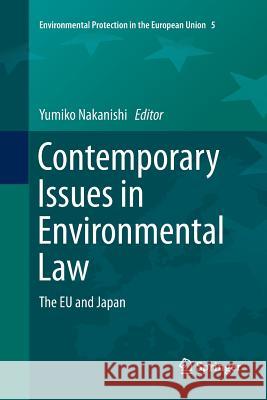Contemporary Issues in Environmental Law: The Eu and Japan » książka
topmenu
Contemporary Issues in Environmental Law: The Eu and Japan
ISBN-13: 9784431566564 / Angielski / Miękka / 2018 / 216 str.
Kategorie:
Kategorie BISAC:
Wydawca:
Springer
Seria wydawnicza:
Język:
Angielski
ISBN-13:
9784431566564
Rok wydania:
2018
Wydanie:
Softcover Repri
Ilość stron:
216
Waga:
0.33 kg
Wymiary:
23.39 x 15.6 x 1.24
Oprawa:
Miękka
Wolumenów:
01
Dodatkowe informacje:
Wydanie ilustrowane











